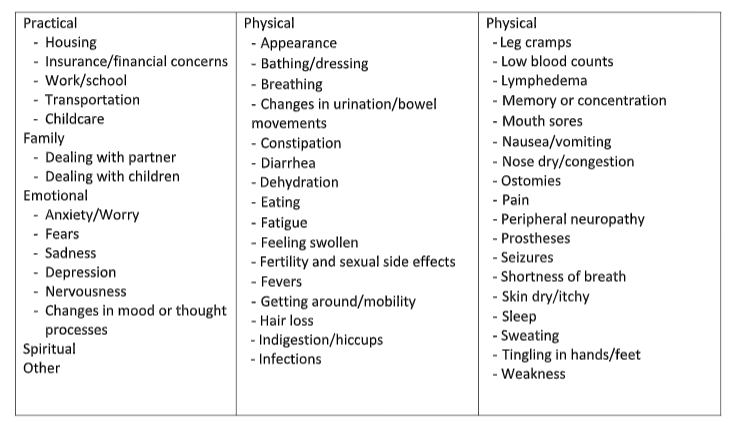If you’ve recently been diagnosed with cancer, you may wonder what is ahead and where you can turn to for help. You have listened to the doctor, perhaps gotten a second opinion, and developed a treatment plan. You may feel anxious, afraid, depressed, and unsure about how to move forward.
Kelly’s journey
Kelly’s diagnosis was startling — stage 1 breast cancer with lymph involvement. Even though it was an early-stage diagnosis, the lymph nodes being affected made the situation more serious. Kelly decided that to deal with cancer emotionally, she needed to learn as much about it as she possibly could.
She spoke with her doctors and her spouse, and they developed an action plan. Throughout her treatment, she and her spouse focused on each step and each day rather than the end goal. They stayed as active as they could, and when her mood was low, she leaned on friends and family for emotional support whenever she needed it, and rested whenever her body told her it was time.
Today, with chemo and radiation behind her, Kelly’s prognosis is good, although she does have to check in with the doctor every six months to make sure the cancer has stayed in remission. Kelly was lucky that they found and treated her cancer in its early stages, and her outcome was positive.
Still, she faced challenges during her treatment.
She worried about losing her hair and how her body would change, what people would think when she was in public not looking or feeling her best, how the drugs might affect her long term, and how they would deal with the financial side of treatment. Even now that she is in remission, she worries that it could come back and she would have to endure chemo again.
Every person, their health, and how they cope is different.
What’s the best way to get through fighting cancer?
Start by pulling together a support team: loved ones, friends, family, and your doctors. Talk with them honestly about your diagnosis, your fears, and what you might need from them.
Know that you are not alone. According to the American Cancer Society, 16.9 million people living in the US have cancer.
Educate yourself about the kind of cancer you have and any support services that may be in place.
Make a list of all of the resources you or your loved ones may need. Include names and contact information for your support team, any financial assistance services and a mental health professional that you can talk to, in-home nursing care, house cleaning, chaplain, priest, or pastor, transportation, a nutritionist, and even lodging near a treatment facility if you need to travel to receive treatment.
Take time for the activities you enjoyed before your diagnosis and treatment (as long as the doctor okay’s it and you feel up to it). Not only will this help alleviate stress, but it will also help give you a sense of normalcy.
Keep track of how you’re feeling both emotionally and physically. A helpful way to do this is to complete a self-assessment regularly. Your doctor may have a checklist that they can share. The ACS provides a list on their website that you can use as well. We have included it below with a few additions. Assign a number 0-10 to each item (10 = the most stress).
Discuss and share this with your support team, especially if you are ranking an item five or higher.
There are six categories. All are equally important, and if other items are significant to you, include them on your list.

Do not hesitate to contact your doctor immediately if a new physical co-occurring illness (lymphedema, for example) is a concern or occurs.
Join a support group and encourage your family to do so as well. Cancer is scary for you and everyone who loves you, and having someone to talk to about it can make a huge difference.
Continue your self-assessment even after completion of your treatment. Your support or treatment team will be able to help or will be able to direct you to a resource that can.
Remember to find a way to take care of you - talk with someone you trust, treat yourself to something that will lift your spirits (safely), get a massage, listen to music, journal or write, meditate, exercise, or anything else that helps you relax, and try not to look too far into the future�tackle each day as it comes.
For more support, join our empathetic community, chat with a free, trained listener, or start affordable online therapy today.
Sources:
American Cancer Society — Cancer.org
Healthcare Hospitality Network - HHNetwork.org
